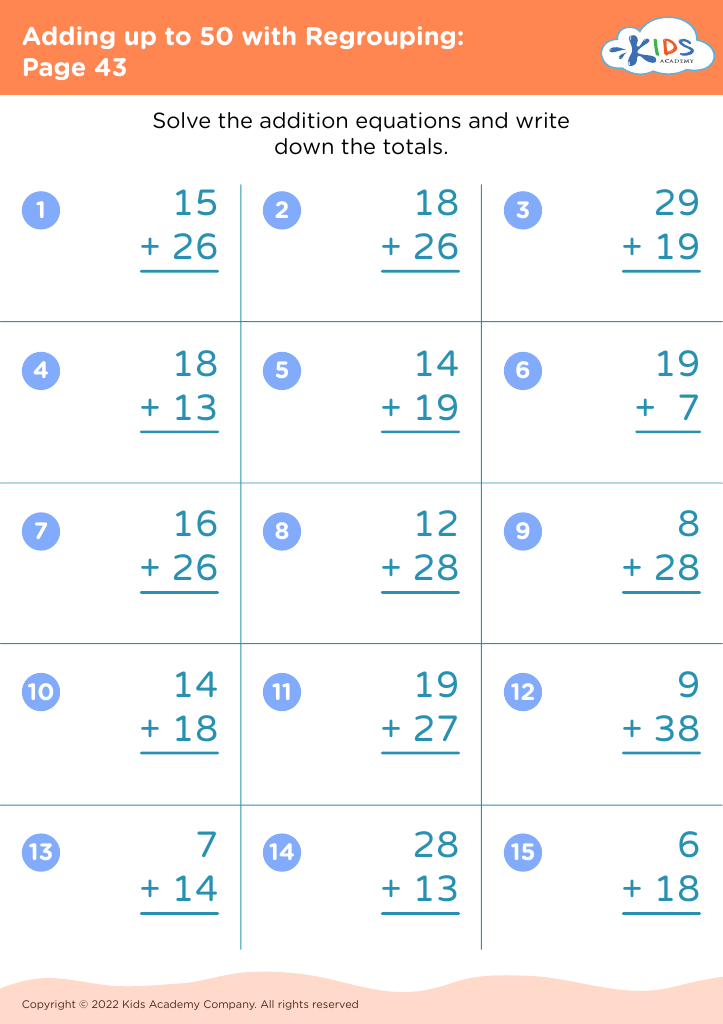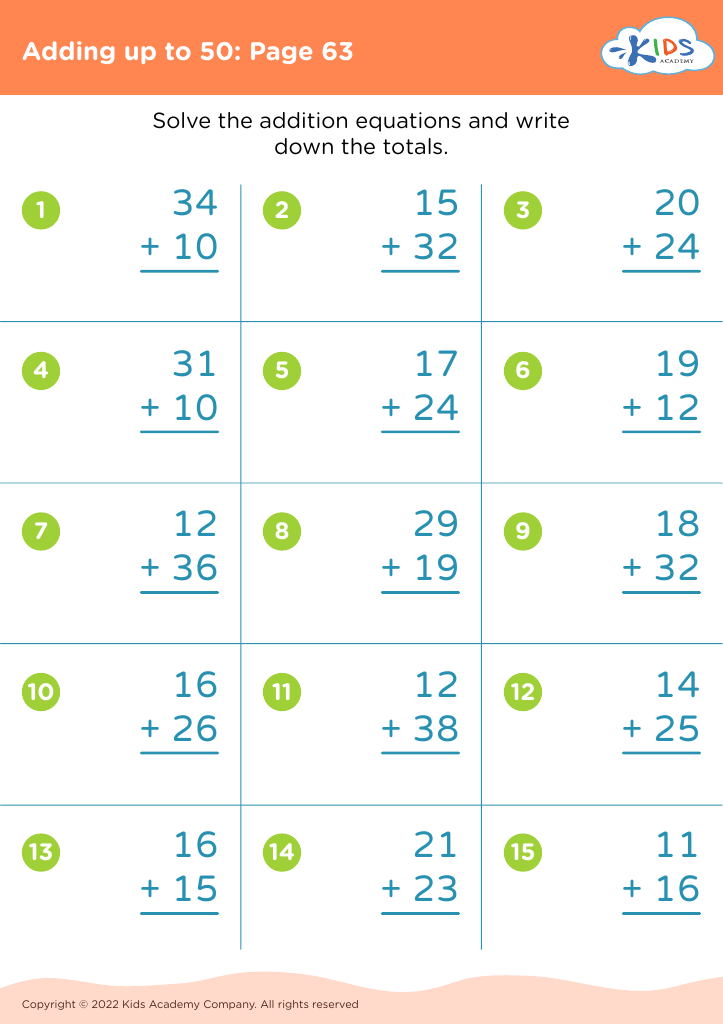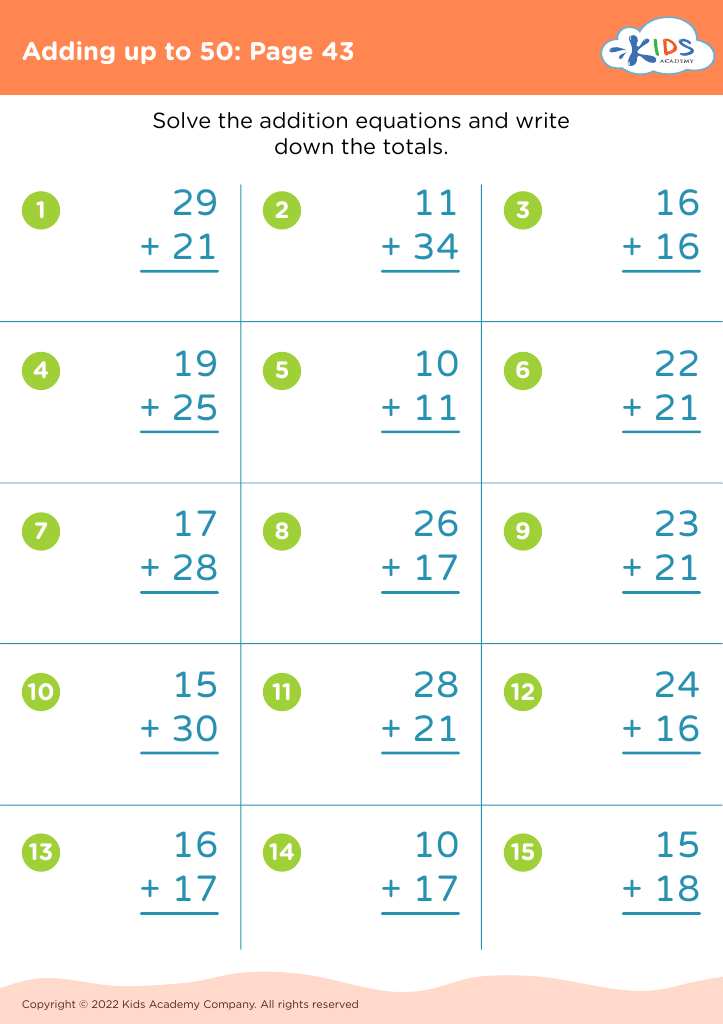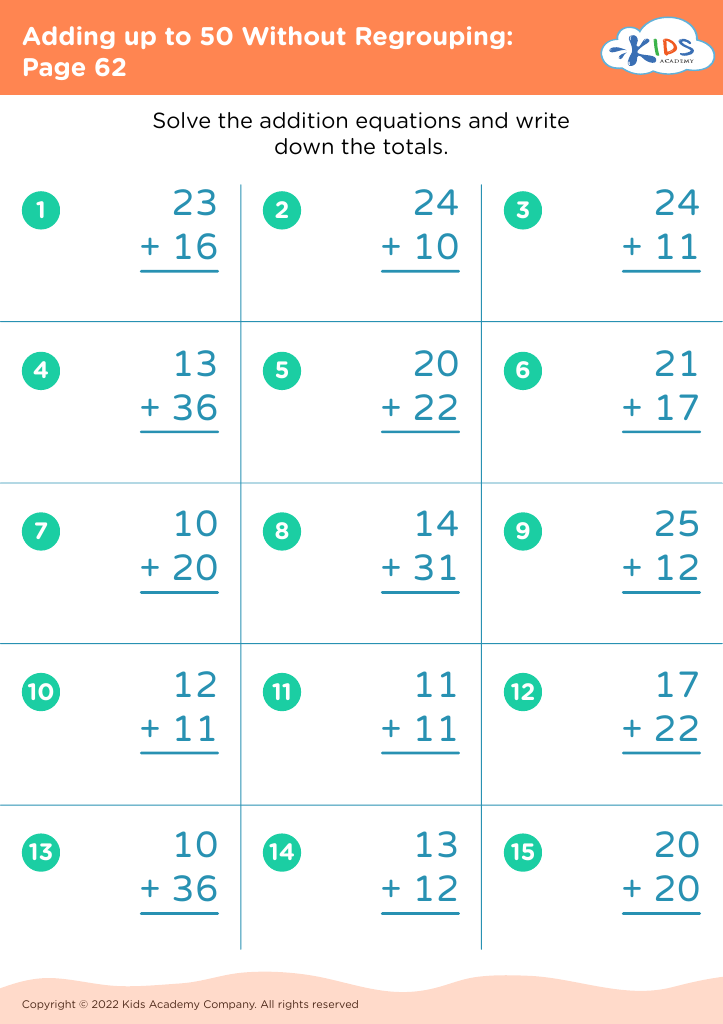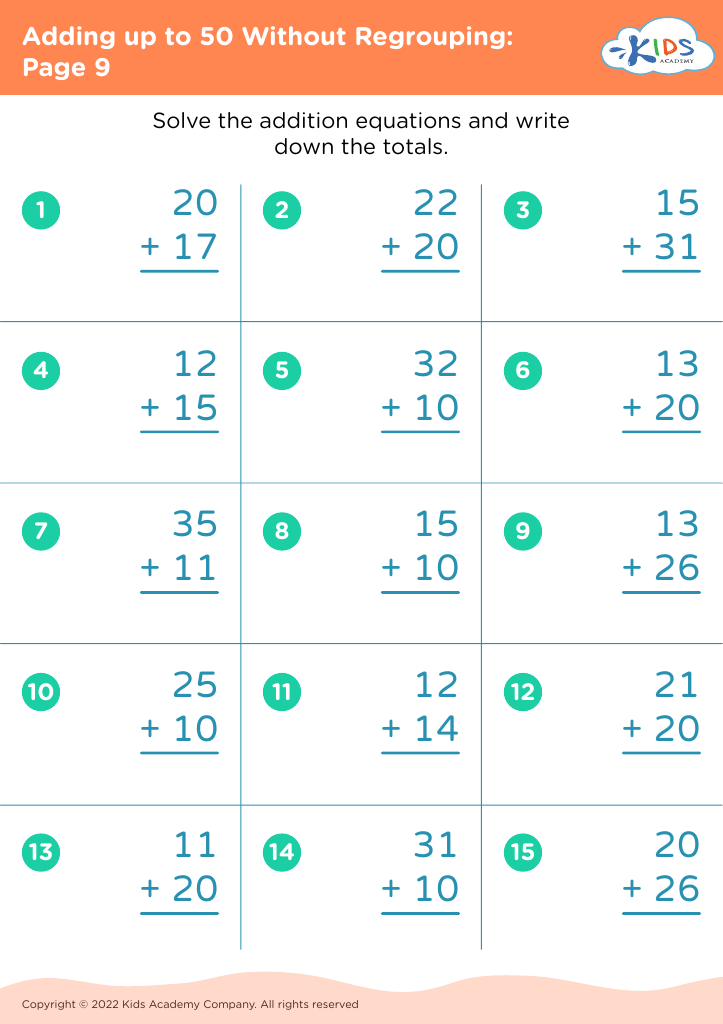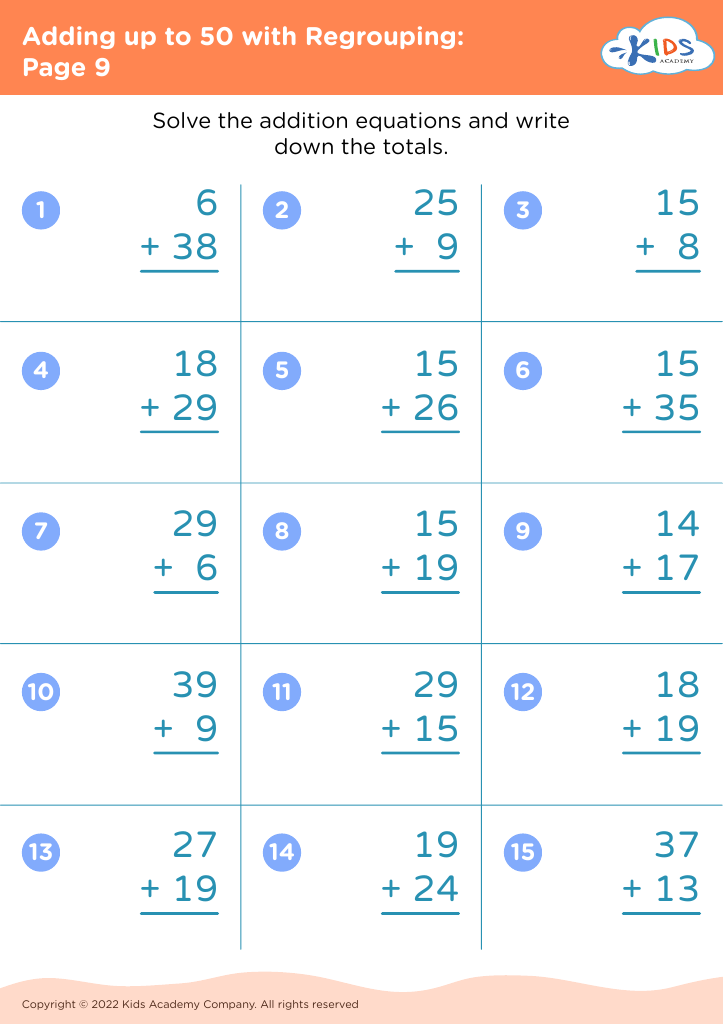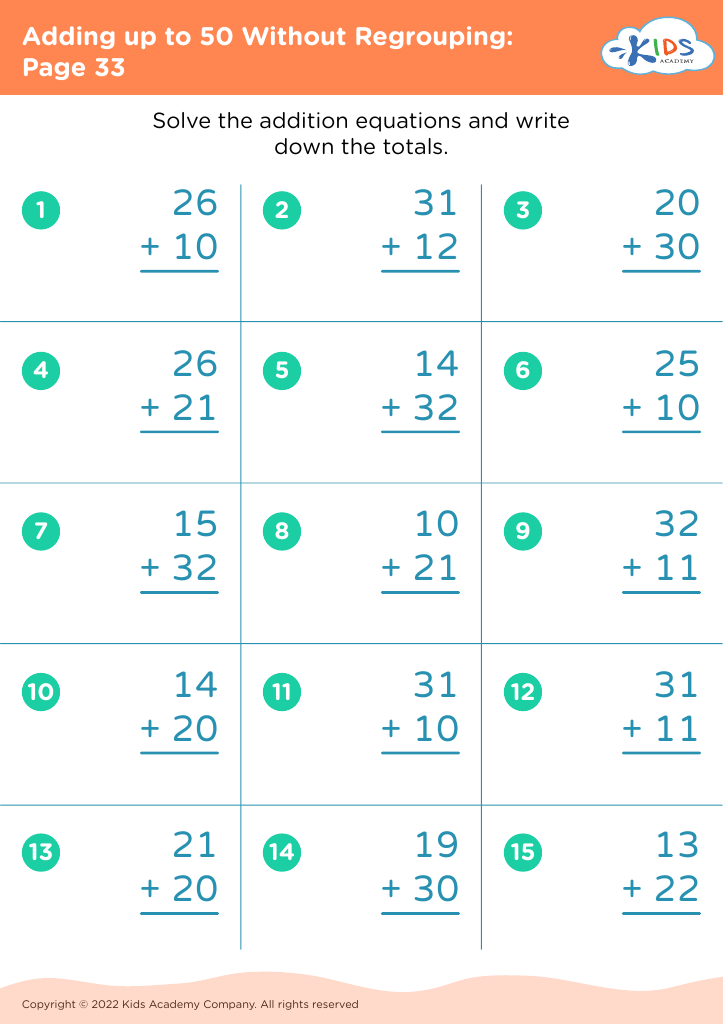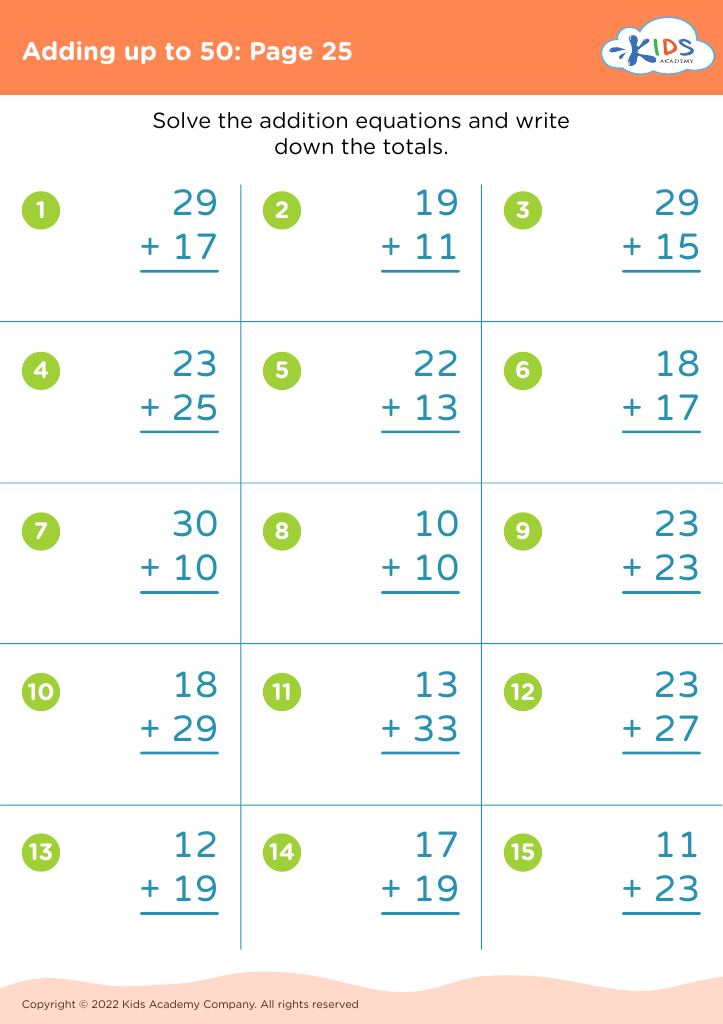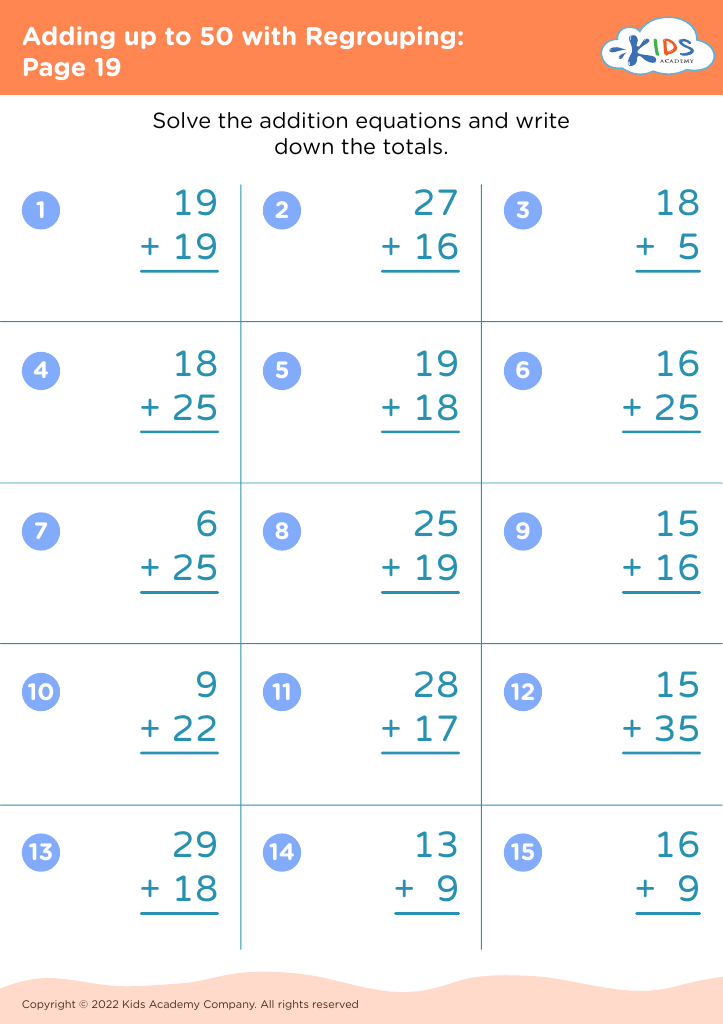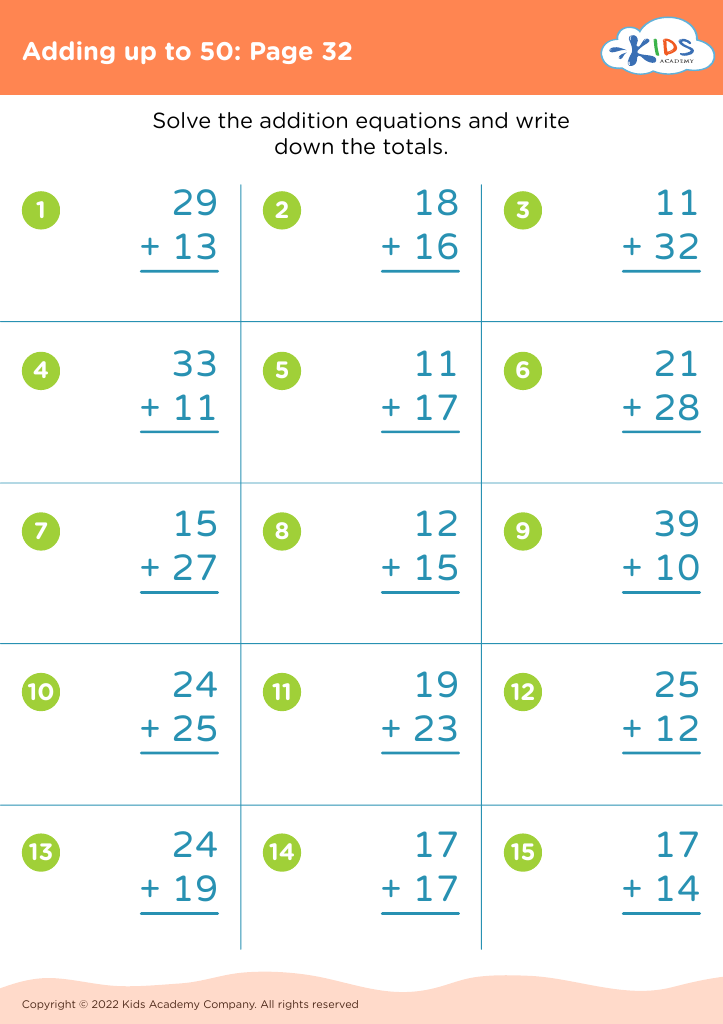Addition Practice Adding up to 50 Worksheets for Ages 3-7
16 filtered results
-
From - To
Enhance your child's math skills with our addition practice worksheets designed for children ages 3-7. Our engaging worksheets help young learners master the fundamentals of adding up to 50 through fun and interactive exercises. Perfect for preschool and early elementary students, these printable resources foster confidence in math by gradually building addition abilities. Each worksheet is carefully crafted to strengthen numeracy, promote problem-solving skills, and encourage independent learning. Download now from Kids Academy and give your child the tools they need to succeed in math while enjoying the learning process!
Parents and teachers should prioritize addition practice for young learners, especially when focusing on adding up to 50 for ages 3-7, because early math skills are foundational to future academic success. Introducing children to addition at an early age helps develop critical thinking and problem-solving skills, which are essential across all subjects. At this age, young minds are incredibly receptive, and engaging with numbers can enhance cognitive development.
Understanding basic addition helps build confidence; children who grasp these concepts successfully feel more positive about learning and are more likely to engage enthusiastically in future mathematical challenges. Incorporating fun and interactive addition exercises also helps to develop fine motor skills, attention to detail, and the ability to follow instructions, which are crucial for overall learning progression.
Moreover, mathematical literacy is vital in everyday life, from simple tasks like counting toys or understanding money to more complex decision-making situations. By mastering addition early on, children lay a solid groundwork for more advanced math concepts such as subtraction, multiplication, and division.
Consistent practice helps young learners internalize these skills, making math less intimidating and more enjoyable. Creating an environment that fosters a love for numbers and problem-solving can set students up for long-term educational achievement and an enduring curiosity about how the world works.


